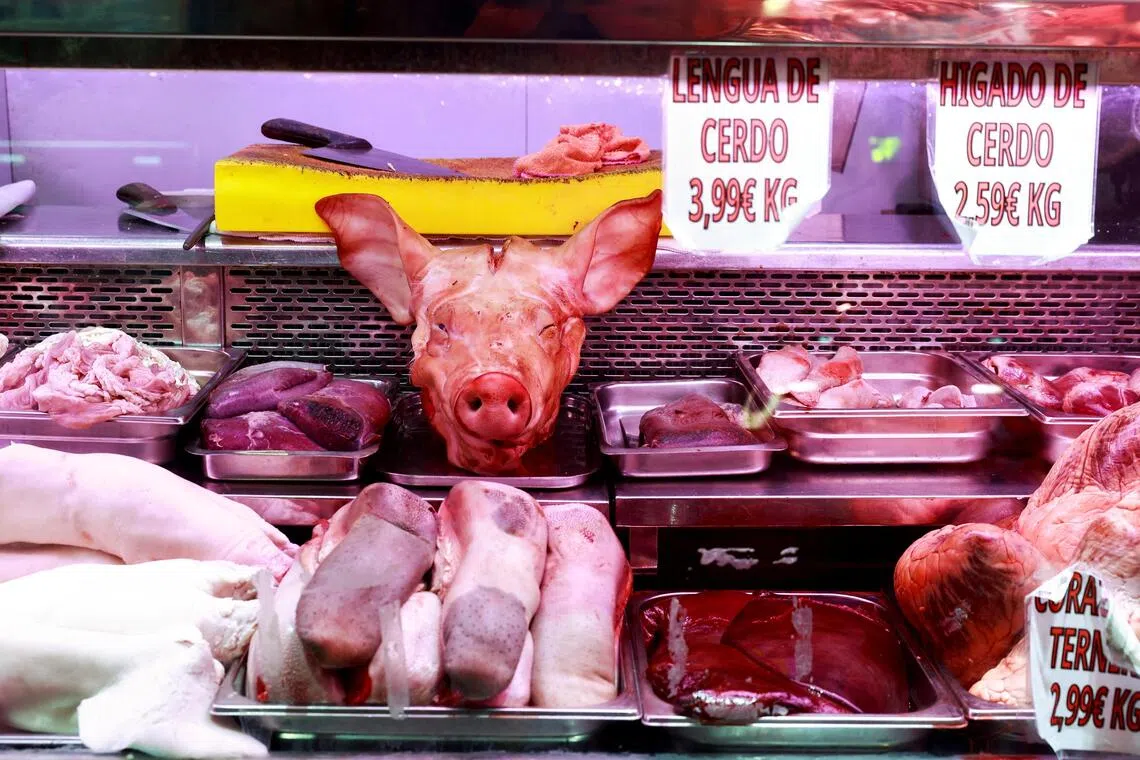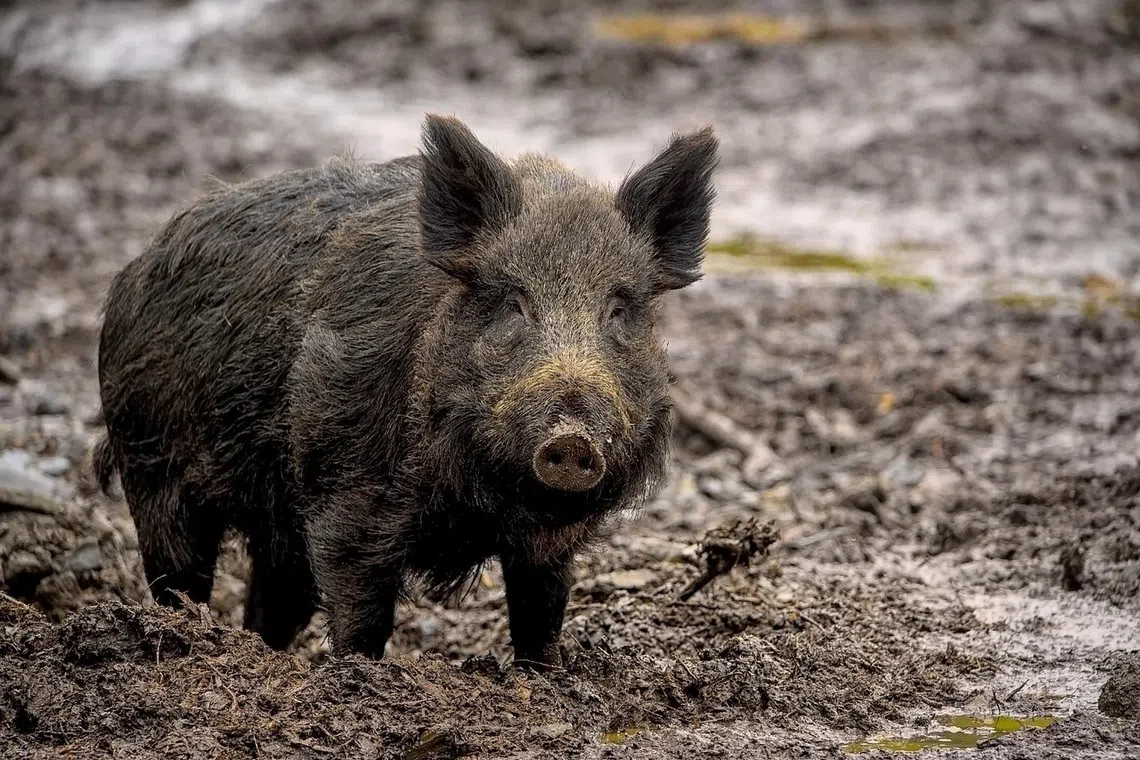Spain halts pork exports to China after first case of African swine flu in three decades
Sign up now: Get ST's newsletters delivered to your inbox

A 2024 photo shows pork products displayed at a market stall in Madrid, Spain.
PHOTO: REUTERS
Follow topic:
- Spain halted pork exports to China after African swine flu was found in wild boar near Barcelona, the first outbreak since 1994.
- A China deal allows regional import restrictions, meaning only farms within 20km of the outbreak face operating and sales restrictions.
- The virus is spreading in Europe, affecting pork industries in Germany and Croatia, and causing concern for EU pork prices.
AI generated
MADRID - Spain’s Agriculture Ministry said it has halted all pork exports to China after two wild boar found dead near Barcelona tested positive for African swine flu
The outbreak, the first since 1994, coincides with Spanish efforts to court Beijing and gain market share in the pork sector and after China imposed tariffs on EU pork during an anti-dumping investigation.
Spain is the European Union’s leading pork producer, accounting for roughly a quarter of the bloc’s output, ahead of Germany, with annual pork exports of about €3.5 billion (S$5 billion).
The Director-General of Agri-Food Production Health and Animal Welfare, Mr Emilio Garcia, told reporters in a briefing the measure was implemented in line with a recently agreed bilateral protocol with Beijing.
Once China declares that protocol has been activated, it will be able to resume exports from regions that are not affected by the virus.
Barcelona is in the Catalonia region, which accounts for about 7 per cent of the country’s pork farms, according to Agriculture Ministry figures.
“It’s not good news. The European market is already struggling after a 20 per cent drop in prices since July,” said meat analyst Jean-Paul Simier, of French commodities research group Cyclope.
“There is a risk of an embargo against the biggest EU pork exporter, notably in Asia, and China in particular.”
Spanish pork lobby Interporc said pork farms within a 20km radius of the location where the boar were found would face restrictions on operating and selling their products.

Spain detected its first cases of African swine fever since 1994 after two dead wild boars tested positive for the virus.
PHOTO: PIXABAY
The recently signed agreement will mean the rest of Spain’s pork producers would be able to continue to export to China and the EU, although other countries such as Japan could impose blanket bans, Mr Daniel de Miguel, Interporc´s international director, told Reuters.
Not catastrophic
There are no restrictions on pork exports to the EU outside the 20km radius of a wooded area near Barcelona, where five pig farms operate, Mr García Muro said.
Spain’s farmers’ association, Asaja, said the sector was ready to face the outbreak, but said authorities needed to address an “out of control presence” of wild animals such as boars and rabbits in rural areas that risked contaminating livestock.
“We have spent years modernising farms, reinforcing biosecurity and making our operations among the most advanced in the world,” it said.
The ministry said it had notified the European Union and activated emergency measures in the affected area, urging pig farms to tighten security measures while investigators try to find the source of the infection.
The virus, which is harmless to humans but deadly for pigs, has been spreading westwards in Europe in recent years.
Germany’s sizeable pork industry has already been rattled, with many overseas countries imposing bans on its pork.
In recent months, Croatia has been trying to contain an outbreak. REUTERS

